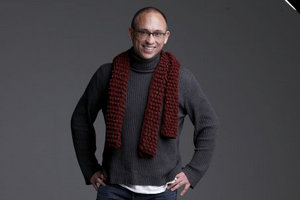The board of directors of ASIAC, an HIV/AIDS service organization that focuses on the Asian and Pacific-Islander community, last week announced the appointment of a temporary leader to guide the agency through its upcoming transition process.
Kevin Huang, a former HIV/AIDS worker from New York City, will serve as the interim executive director of the organization, taking over for longtime executive director Ron Sy.
Sy announced last spring that he was planning to step down from the position he held for 12 years, but said he would stay on until the board selected a temporary replacement.
The organization is accepting applications for the executive-director position until Nov. 12.
Huang’s most recent position in the field was as policy and capacity-building specialist for the Asian & Pacific Islander Coalition on HIV/AIDS in New York.
“Kevin’s skills and experience from having worked at APICHA will be very valuable for ASIAC’s executive transition,” said Melissa Frost, co-chair of the ASIAC board of directors. “He has knowledge of the health-care issues that ASIAC and our clients face, has experience in managing large projects and has many contacts in the health-care field. ASIAC has a transition team that is in the middle of a search for the next executive director, and in the meantime, I am confident that Kevin will be effective and productive as ASIAC’s interim executive director.”
ASIAC will hold an open house from 4-7 p.m. Oct. 29 at the agency’s office, 340 N. 12th St., for friends to bid farewell to Sy and thank him for his service.
Huang, 41, is a native of Denver, and attained his bachelor’s degree in architecture and master’s in city and regional planning from New York City’s Pratt Institute.
His interest in working in the HIV/AIDS field was captured when, in 1996, he faced his own health crisis and was hospitalized with an HIV-related meningitis infection. Huang said he was lucky to have health insurance at the time, although the scare motivated him to work on behalf of others who may not have full access to health care like he did.
“It took several years to recover fully from that,” Huang said. “And during that recovery process I started meeting with people to discuss [HIV/AIDS funding program] Ryan White community planning, and I said, ‘Well, I have some experience in community planning, let me try this.’ And that was really the genesis of my involvement in the HIV field.”
Huang left APICHA in 2008 to move to Philadelphia, where he has been focusing on his art career. He made connections with ASIAC while he was in New York and said when the agency contacted him about the director position, he jumped at the chance.
“I love this field. I love working with the Asian community,” he said. “I think as an organization, ASIAC is uniquely situated to really address some of the most complicated health issues that Asians in Philadelphia are facing.”
Huang noted that, with the Ryan White Care Act set to expire in 2013 and the recent federal efforts to overhaul the health-care system, HIV/AIDS groups need to prepare for the future.
“HIV service organizations are going to have to go through critical changes. ASIAC is situated in that nexus of providing access to people who can’t necessarily communicate the complicated issues they face effectively within the mainstream care community, and I think we can potentially expand that service to provide even better health care for Asians. But we need to keep this focus on the stigmatized problems of HIV and hepatitis B and other things that the Asian community doesn’t often like to talk about. I want to help the organization navigate through what’s going to be a very turbulent period.”
For more information about ASIAC, visit www.asiac.org or call (215) 629-2300.
Jen Colletta can be reached at [email protected].

